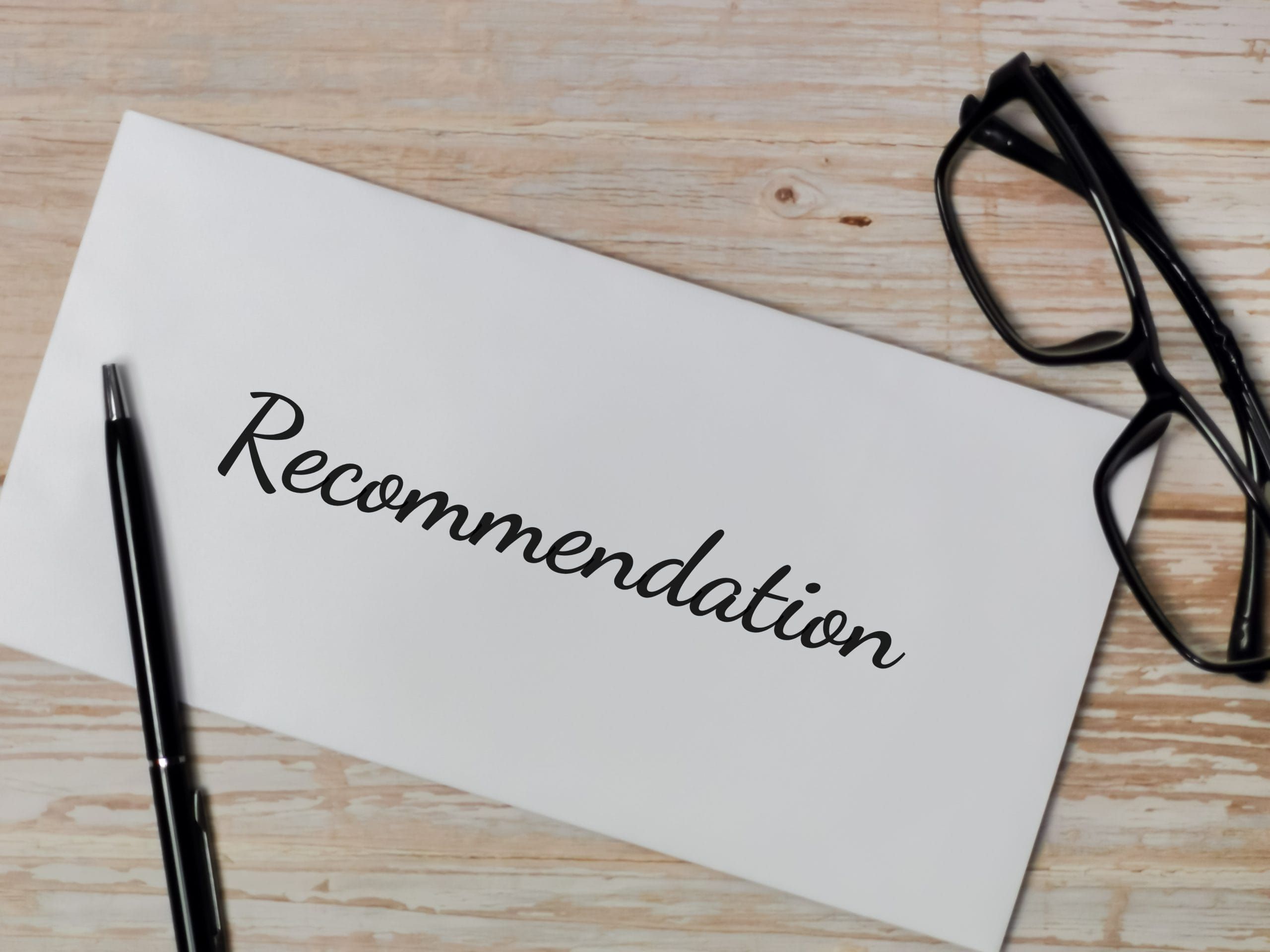Use this article to learn how to craft the best possible recommendation letter for employment and help your professional contact land the position for which they are applying.
Understanding the Purpose of a Recommendation Letter
A letter of recommendation is a powerful tool that offers a formal endorsement of an individual's skills, character, an achievements. It provides potential employers, academic institutions or organizations with an objective, third-party perspective on the candidate's qualifications. By highlighting their strengths, work ethic and accomplishments, it can be the deciding factor in hiring, admissions or scholarship decisions.
Crafting a compelling letter requires a clear understanding of its purpose - showcasing the candidate’s suitability for the specific role or program. A well-written recommendation doesn’t just summarize achievements; it demonstrates why the individual is the perfect fit, using concrete examples and tailored language to leave a lasting impression.
What Is a Letter of Recommendation?
A letter of recommendation is a written endorsement of an applicant’s skills, qualifications, experience and character.
It is written on behalf of the applicant to help them in one of the following two settings:
- Professional: for job applications
- Academic: includes applications for college admission, scholarships and graduate programs
However, in this article, we’ll be focusing on the first one.
One study demonstrated that attaching a recommendation letter increases a job seeker’s chances of getting a response from a company by 59%. That said, a well-written recommendation letter can help separate your endorsed candidate from the competition.
When it comes to who should write this recommendation letter, it has to be someone who has shared professional (or at least work-related) history with the applicant. Typically, these can be:
- Former or current supervisors and managers
- Team leads or colleagues familiar with the candidate’s work
- Academic advisors or professors
Tips for Writing a Letter of Recommendation
Given that writing a recommendation letter can potentially lead to the candidate’s dream employment, you want to make sure that you follow the best practices when writing one.
Some of our main tips for writing a letter of recommendation include:
- Provide concrete examples: Be specific and try to highlight how the applicant’s actions resulted in a particular positive change or how their work impacted the overall organization for the better.
- Ask for input: If it’s been some time since you interacted with the applicant, take the time to have a discussion with them. That way, you can learn about their recent accomplishments or any projects they are proud of that can highlight their ability to perform.
- Tailor the letter to the opportunity: Customize the letter to align with the specific role or program the candidate is applying for. Emphasizing how their skills and experiences fit the opportunity demonstrates thoughtfulness and adds value to your recommendation.
- Keep the letter positive and professional: Focus on the subject’s most relevant skills and strengths; avoid making remarks that might have a negative connotation. By using a positive yet formal tone, you will leave a strong impression on the reader and reinforce your applicant as the top choice.
- Proofread and finalize: Make sure the letter is as polished as possible by checking for any typos or grammatical errors.
- Follow submission guidelines: Ensure that your letter of recommendation follows the instructions provided either by the applicant or the organization for which they are applying. This includes deadline, length, formatting and the delivery method.

Common Mistakes to Avoid in Recommendation Letters
To ensure your recommendation letter is impactful, avoid the following pitfalls:
- Being Vague: Provide specific examples rather than general statements to substantiate your claims about the candidate.
- Including Irrelevant Information: Focus on qualities and experiences pertinent to the position or program the candidate is applying for.
- Using Clichés: Avoid overused phrases that can diminish the letter's originality and impact.
- Neglecting to Proofread: Ensure the letter is free from grammatical errors and typos to maintain professionalism.
What To Include in a Letter of Recommendation
Here are six items that your professional letter of recommendation should have:
- Salutation: Address the letter to a specific individual, if possible, to personalize the recommendation.
- Introduction: State your relationship with the candidate and the context in which you have interacted.
- Body Paragraphs: Provide detailed examples of the candidate's skills, achievements and character traits, aligning them with the requirements of the position or program.
- Applicant’s strengths: Mention some of the applicant’s skills and qualifications that you’ve seen firsthand. It’s best to keep it to those that are related to the role.
- Experience with the applicant: Provide a specific story in which the applicant’s strengths contributed to the overall success of your project or organization.
- Conclusion: Summarize your endorsement and offer your contact information for any follow-up questions.
- Signature: Include your name, your job title, the name of the company where you work and your contact information.
See also: How To Write a Cover Letter + 3 Examples
Key Qualities to Highlight in a Recommendation Letter
When you’re writing a recommendation letter for someone in the hospitality industry, focus on qualities that highlight their ability to excel in this fast-paced, people-centered field. Use real-world examples to make their strengths pop:
- Leadership Skills: If they organized a flawless event, or managed a team during a high-pressure shift, share how their leadership made a difference. For instance: “During peak dinner service, they effectively managed the front-of-house team to ensure every guest received exceptional service, even on the busiest nights.”
- Problem-Solving Abilities: Hospitality comes with constant challenges. Did they handle a last-minute booking mix-up or solve a staffing shortage? For example: “When faced with a sudden overbooking, they quickly reorganized the seating plan and coordinated with the kitchen to ensure every guest had a seamless dining experience.”
- Teamwork: Collaboration is everything in hospitality. Talk about how they worked closely with chefs, servers or other staff to create smooth operations. For example: “They consistently fostered a team-oriented environment, often stepping in to assist colleagues during high-pressure events, ensuring everything ran smoothly.”
- Communication Skills: Whether it’s calming a frustrated guest or coordinating with event staff, their ability to communicate clearly is critical. For example: “They handled guest concerns with professionalism and empathy, ensuring every issue was resolved to the guest’s satisfaction.”
- Work Ethic and Dependability: Reliability is key in the hospitality industry. Mention how they consistently showed up on time, stayed late when needed and ensured their responsibilities were always handled. For example: “They were known for their dependability, often volunteering for extra shifts during peak holiday seasons and never compromising on quality.”
By tailoring these examples to the hospitality field, you’ll showcase how the candidate’s skills and experience are perfectly aligned with the demands of the industry, making your recommendation more impactful.
Professional Recommendation Letter Template
Use our recommendation letter template below to help you in writing your own. You can even download a PDF or Word file; simply edit the parts in brackets according to your preferences.
Recommendation Letter Sample (General)
Below you can see an example of a completed cover letter:
To Whom It May Concern:
I am excited about the opportunity to recommend Jack Shepherd for the Sales Representative position at Innovative Solutions Corp.
I’ve had the privilege of working closely with Jack for the past three years at Global Sales Group as his supervisor, where he has consistently demonstrated impressive sales acumen, customer relationship management and leadership in a fast-paced environment.
Jack is a natural at generating leads and closing high-value deals. Throughout his tenure, he has consistently exceeded expectations, delivering a 40% increase in revenue for our department in just the past year. His ability to truly listen to clients, assess their needs and provide tailored solutions has made him a standout performer on our team.
One of his most remarkable achievements was securing a lucrative multi-year contract with a prominent Fortune 500 company. Jack’s thoughtful approach to understanding the client’s business challenges and crafting a solution that aligned with their objectives not only helped seal the deal but also paved the way for ongoing partnerships.
I have no doubt that he will bring the same dedication and success to your organization, and I wholeheartedly support his application.
Please feel free to reach out to me if you need any further information.
Best regards,
John Locke
Regional Manager – Global Sales Group
[email protected] / (555) 678-9012
Recommendation Letter Sample (Hospitality)
This example is tailored for someone applying to be a Hotel Manager; use and customize it to apply to roles within the hospitality sector:
To Whom It May Concern:
I am delighted to recommend Sarah Johnson for the Hotel Manager position at LuxeStay Resorts.
I had the privilege of working alongside Sarah for five years at Grand Vista Hotel, where she served as the Assistant Hotel Manager.
In this role, Sarah demonstrated exceptional leadership, operational expertise and a remarkable ability to elevate guest experiences.
Sarah’s dedication to excellence was evident when she led a team initiative to streamline the hotel’s check-in process, reducing wait times by 25% and significantly improving guest satisfaction scores. Her focus on training and mentoring staff also fostered a collaborative and service-oriented work environment, which contributed to a 30% increase in positive guest reviews over her tenure.
I am confident that Sarah’s proven track record of success, coupled with her passion for hospitality, makes her an outstanding choice for the Hotel Manager role at your esteemed organization.
Please feel free to contact me if you would like additional details about Sarah’s contributions and accomplishments.
Sincerely,
Jennifer Blake
General Manager – Grand Vista Hotel
[email protected] / (960) 123-4567
Key Takeaways
Writing a powerful recommendation letter could make all the difference for the applicant. By following our tips and examples, you will increase the chances of helping the applicant stand out.
Just remember to stay professional, highlight the applicant’s strengths and demonstrate how they can contribute to the organization for which the applicant is applying. Lastly, always consider what hiring managers would want to know about the applicant based on your perspective. Below is a final piece of advice from one of OysterLink's experts:










Loading comments...